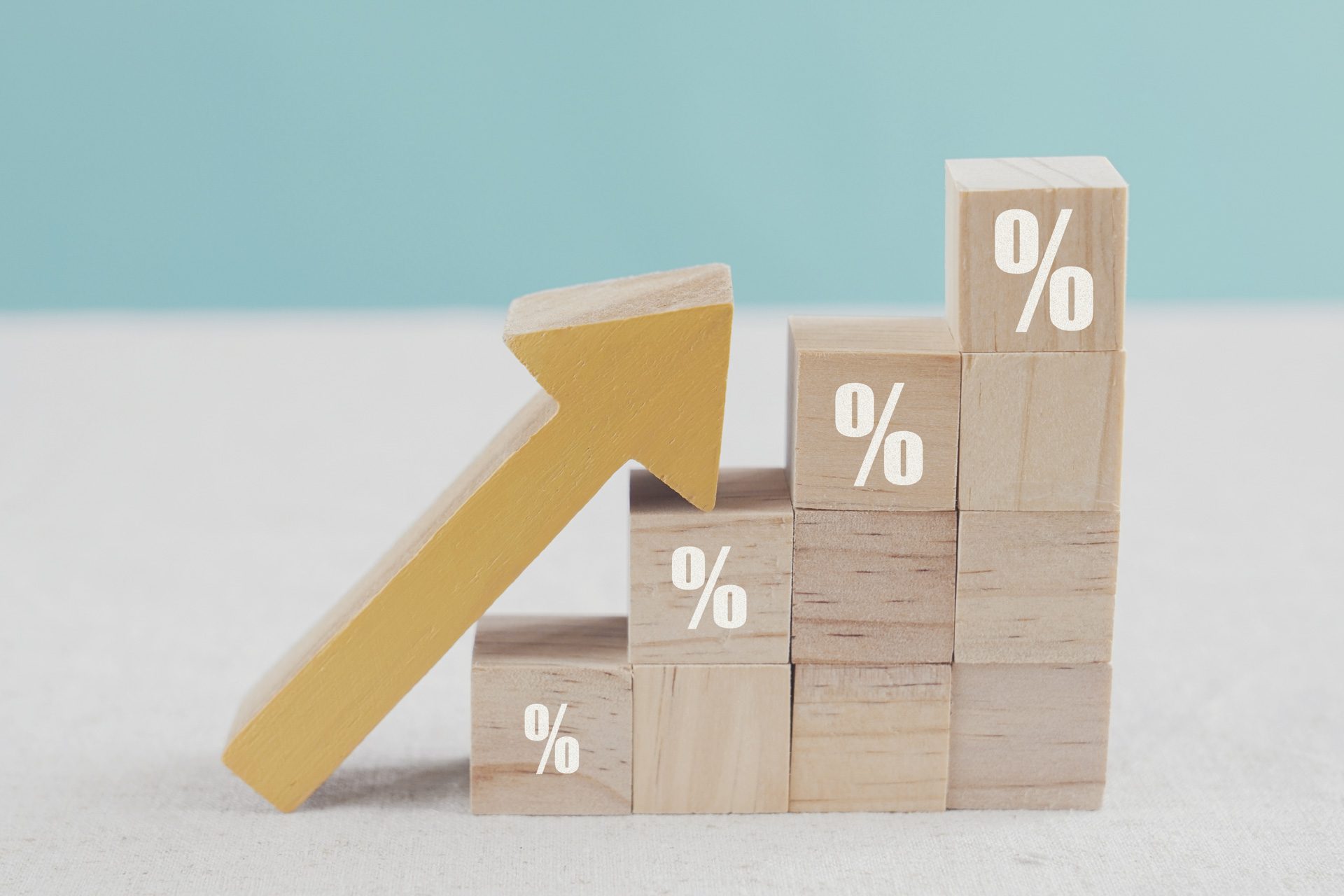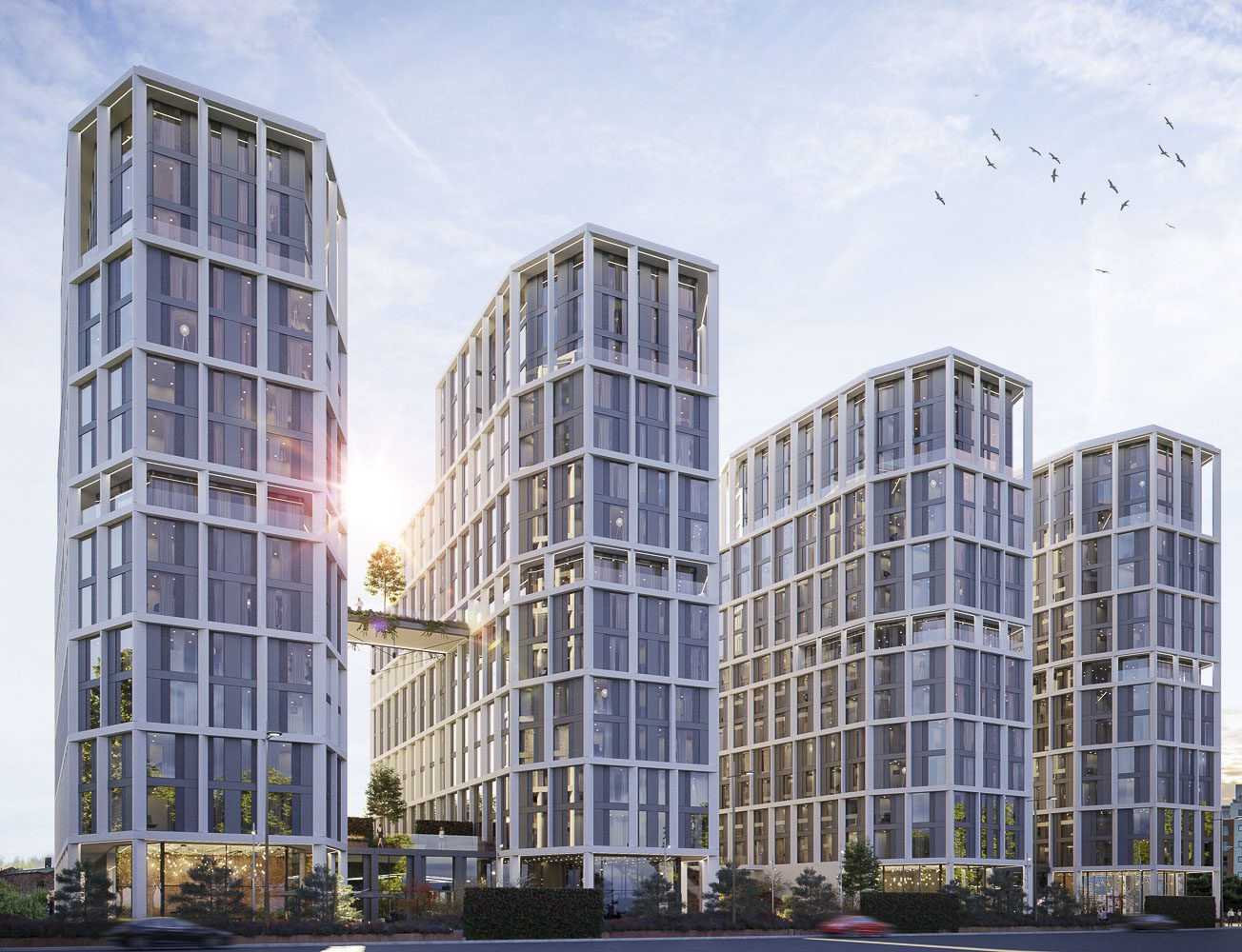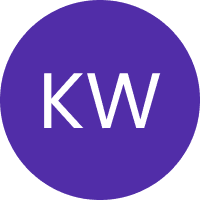- House Price Growth Remains Weak – But For How Much Longer?
- UK Housing Market Activity Is Weak
- What Are the UK House Price Changes Per Region for Q3 2023
- UK House Price Index Property Type Breakdown
- When Will UK Property Prices Bottom Out?
- Why September’s UK House Price Data May Encourage Optimism for Buy-to-Let Investors
- Could UK House Prices Rise In the Near Future?
- Final Thoughts on UK Property Valuations
House Price Growth Remains Weak – But For How Much Longer?
Nationwide has revealed that average UK property prices fell by 5.3% over the past year.
In real terms, the average house price fell by £14,500. These figures match the 5.3% drop reported by Nationwide in August. This marks the weakest price growth rate since 2009.
According to the lender, the UK average house price now stands at £257,808.
What does this mean for house prices moving forward? How did the experts weigh on the latest figures?
Read on for more information.


How to Build a Property Portfolio, Get Started Now!
Tips on how to start building your property portfolio with tools for success.
UK Housing Market Activity Is Weak
According to Nationwide’s Chief Economist, Robert Gardner, the cost-of-living crisis is the main reason for struggling house prices.
“Housing market activity remains weak, with just 45,400 mortgages approved for house purchase in August, c.30% below the monthly average prevailing in 2019 before the pandemic struck. This relatively subdued picture is not surprising given the more challenging picture for housing affordability.”
However, if the downward trajectory of borrowing costs continues, buying a house will get easier. Gardner continues:
“Investors have marked down their expectations for the future path of Bank Rate in recent months amid signs that underlying inflation pressures in the UK economy are finally easing, and with labour market conditions softening.
Instead, it appears more likely that a combination of solid income growth together with modestly lower house prices and mortgage rates will gradually improve affordability over time, with housing market activity remaining fairly subdued in the interim.”


Final Day to Secure £30,000 Discount
Enquire today to qualify for our £30,000 discount on Manchester waterfront 2-bed property.
What Are the UK House Price Changes Per Region for Q3 2023
Nationwide also provided a comprehensive rundown of price changes per region from July to September.
| Region | Average Price | Annual % Change (Q3 2023) | Annual % Change (Q2 2023) |
|---|---|---|---|
| Northern Ireland | £180,668 | -1.8% | 0.7% |
| North | £156,051 | -2.0% | -3.3% |
| West Midlands | £241,130 | -2.4% | -1.9% |
| North West | £205,553 | -3.5% | -4.1% |
| London | £514,325 | -3.8% | -4.3% |
| Scotland | £176,814 | -4.2% | -1.5% |
| Outer Metropolitan Area | £416,365 | -4.4% | -2.9% |
| Yorkshire and the Humber | £198,030 | -5.4% | -3.2% |
| Outer South East | £334,215 | -5.2% | -3.7% |
| Wales | £202,065 | -5.4% | -1.7% |
| East Midlands | £228,373 | -5.5% | -1.1% |
| East Anglia | £273,066 | -5.6% | -4.7% |
| South West | £301,600 | -6.3% | -4.0% |
| UK | £260,181 | -4.7% | -3.1% |
As you can see from the table above, Northern Ireland recorded the smallest annual fall at 1.8%. However, Q2 2023 saw Northern Irish prices increase 0.7%.
Wales experienced a significant 5.4% decrease. However, the South West experienced the most significant decline in property prices, falling -6.3% between July and September.
The rate of price falls accelerated in Scotland, increasing from -1.5% to -4.2% between Q2 and Q3.
Once again, northern England showed remarkable resilience amidst interest rate and inflation uncertainty. The North West price decline slowed from -4.1% to -3.5%. This may be bolstered by buy-to-let property landlords choosing to bet on the region’s significant rental yields and excellent value properties.
Nationwide’s Robert Gardner had the following to say:
“Across northern England (which comprises North, North West, Yorkshire & The Humber, East Midlands and West Midlands), prices were down 3.9% compared with Q3 2022.
The North was the strongest performing northern region, with the annual rate of change improving from -3.3% to -2.0%.”
Meanwhile, the East Midlands proved to be the weakest region – the rate of price decline increased by 4.4% from Q2 to Q3.


£152k Required on Luxury 3-Bed Penthouse
14th floor 3-bed apartment with HUGE assured NET rental income and spa access.
UK House Price Index Property Type Breakdown
As 2023 progresses, buyers seem to look towards smaller and cheaper off plan investment properties. Previous Nationwide House Price Indexes showed that flats held up better than larger property types as far as transaction volumes are concerned.
This could be down to numerous reasons, chiefly the lack of a price increase during the COVID-19 Pandemic. These figures can be seen in the table below:
| Property Type | % Growth (Q1 2020 – Q3 2023) |
|---|---|
| Flats and maisonettes | 11.6% |
| Terraced | 19.5% |
| Semi-detached | 21.0% |
| Detached | 23.8% |
However, flat prices continue to underperform per the Nationwide quarterly data. Flats saw the biggest year-on-year fall (-5.7%) out of any property type.
| Property Type | Price Change (Q3 2023) |
|---|---|
| Flats and maisonettes | -5.7% |
| Terraced | -5.3% |
| Semi-detached | -4.6% |
| Detached | -3.6% |


Get Your FREE Liverpool Investment Guide
Everything you need to know about investing in Liverpool, one of the UK’s hottest investment cities.
When Will UK Property Prices Bottom Out?
Samuel Tombs, Pantheon Macroeconomics’ Chief UK Economist, suggested that the market is “close to bottoming out”.
He said:
“Nationwide’s house price index remains on a downward trend—September’s unchanged reading followed August’s hefty 0.8% month-to-month decline.”
Nationwide calculates that the proportion of first-time buyers’ take-home pay absorbed by monthly mortgage payments has soared to 38%, from a 20-year low of 27% in Q3 2020, and now is well above its 1985-to-present average, 29%.
Nonetheless, affordability should begin to improve over the coming months […] as wages continue to rise, albeit not at their recent frenetic pace. The recent recovery in consumers’ confidence—GfK’s measure of consumers’ expectations for their personal finances over the next 12 months was only a smidgen below its 40-year average in September—suggests that demand also might start to firm up.
The pick-up in rents also will increase the share of income that FTBs are willing to devote to housing. Accordingly, the downturn in house prices probably has only a few months left to run.
We continue to look for a 6% peak-to-trough decline in the official measure of house prices, with the nadir coming in Q1.”


£152k Required on Luxury 3-Bed Penthouse
14th floor 3-bed apartment with HUGE assured NET rental income and spa access.
Why September’s UK House Price Data May Encourage Optimism for Buy-to-Let Investors
While prices have fallen by 5% over the previous 12 months, Victoria Scholar, Head of Investment at Interactive Investor, suggests the data is stronger than predicted.
She says:
“UK Nationwide house prices came in unchanged month-on-month in September, outpacing expectations for a drop of 0.4% and improving from a drop of 0.8% in August.
Year-on-year they fell by 5.3%, a slightly smaller drop than analysts’ forecasts for a decline of 5.7% but still the biggest annual drop since 2009, matching August’s reading. All regions suffered annual house price falls in the third quarter but the South West was the weakest-performing region with prices down 6.3% year-on-year. The average house price now stands at £257,808.
The housing market is under pressure […] however with the Bank of England at or close to the peak of the rate hiking cycle, inflation coming down and house prices cooling, some pressures for potential homeowners could ease in the months ahead.”


Only £30,000 Deposit Required
15% deposit secured for next 10 units only!
Could UK House Prices Rise In the Near Future?
As the interest rate hike halts – for now – and inflation rates continue to decrease, basic economics suggests prices will grow again in the near future. When interest rates fall, it becomes easier for people to borrow money and purchase property. Why not learn about some of the latest property investing tips for 2023 with RWinvest.
The head of UK residential research at Knight Frank, Tom Bill, estimates annual price growth following the next general elevation. This must take place before January 31, 2025.
“Fourteen consecutive rate rises have taken their toll on the property market but more stable lending conditions mean buyers and sellers will be able to catch their breath.
The number of people rolling off more favourable fixed-rate mortgages won’t fall in 2024, but sentiment should improve as volatility reduces. We think most of the UK’s house price correction will happen this year and modest single-digit annual growth will return after the next general election.”
Similarly, GreenResi CEO, Anna Clare Harper agrees that a price crash is much more unlikely due to the “necessity of housing”. She said:
‘Softer pricing is unsurprising as higher interest rates have a much larger impact on affordability than asking prices. Last year’s pricing levels, which were buoyed up artificially by policies such as the stamp duty holiday and very low-interest rates, are no longer achievable.
‘However, unlike commercial property such as offices, which in many cases have fallen in value by 20-30%, it’s unlikely that we will experience a full house price crash. Firstly, this is due to the ‘necessity’ of housing. We all need a roof over our heads. Secondly, a large proportion of the market is owned outright, and they are unaffected by mortgage interest rates. For this reason, fears of a ‘house price crash’ are unrealistic.
‘The challenge is less around house prices and more around the shortage of rental homes, which are in ever greater demand due to reduced affordability of buying a home. The relative stability of house prices combined with a growing supply shortage in rental is encouraging new institutional investment, and this is essential for ‘Generation Rent’.’
Learn more about interest rates with our handy UK interest rates chart.








